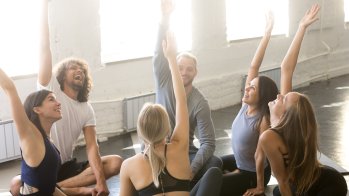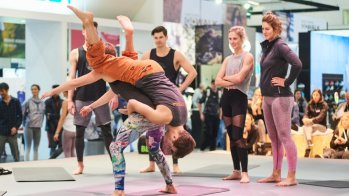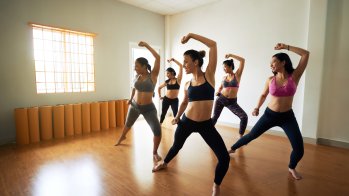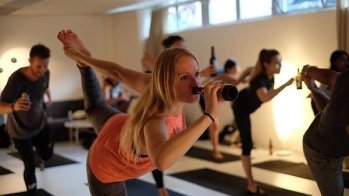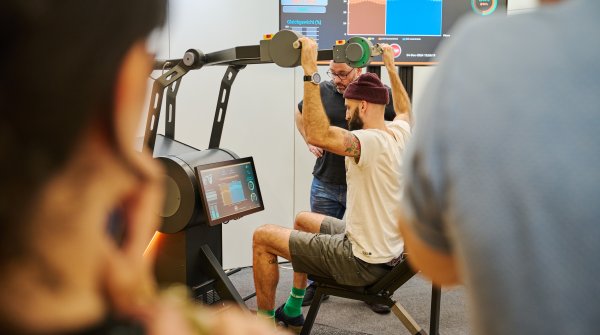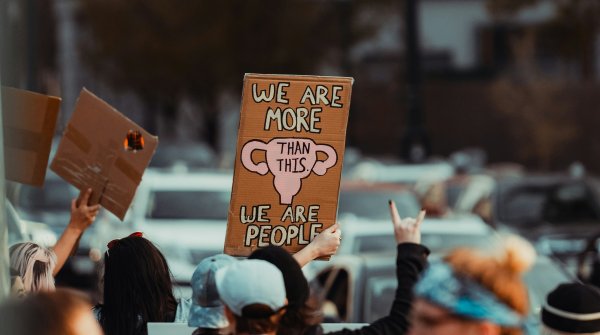The West is damaging yoga. That's what some yogis are currently proclaiming under the hashtag #decolonizeyoga.
The accusation is that the contortions of Western influencers have little in common with the 5,000-year-old yoga teachings from India. The global yoga industry, shaped primarily by whites, with its focus on asanas - physical exercises - has eroded the spiritual underpinnings with annual sales of $80 billion, he said, and is transforming yoga into a lifestyle fitness program.
"Yoga without the philosophy is not Yoga. Reducing Yoga to mere asana does us all a disservice," says Anusha Wijeyakumar, a U.S. yoga teacher with roots in Sri Lanka. Instead, she says, it makes yoga "ableist, heteronormative, elitist, white washed and inaccessible which becomes another tool of oppression."
Wijeyakumar and numerous other yogis now offer entire seminars aimed at educating people about the origins and teachings of yoga.
This accusation is not completely made up out of thin air: In 2021, 77 percent of yoga teachers in the U.S. were white. Just 4.1 percent had Asian roots. A court case in the States in 2013 addressed the legality of yoga classes in schools. Background of the case at the time, Sedlock v. Baird: The plaintiffs saw yoga classes as unconstitutionally indoctrinating students with religious, i.e. Hindu, teachings.
Although the lawsuit failed, the line of argumentation of the yoga defenders in court ultimately even confirmed the accusations of cultural appropriation by the West. According to statements from the court record, yoga in the U.S. is "as secular as aerobics" and meanwhile "more American than Indian."
According to a study by the Professional Association of Yoga Teachers in Germany (BDYoga), the spiritual is also clearly in the background for the majority of German yoga fans. While 66 percent of German yogis said they practice the exercises primarily to improve their physical well-being, only a quarter practice yoga out of personal interest in the spiritual realm.
Yet this is precisely what plays an important role in the numerous yoga retreats and schools in India or Southeast Asian countries such as Thailand. Meditation, conscious breathing, the study of spiritual and religious texts, a meatless diet, chants and ceremonies are integral parts of the holistic yoga teachings there. Instead of looking outward, the focus is on the innermost.
How is this introspection supposed to succeed, while on Instagram or Tiktok a veritable competition rages for ever more daring poses and thus new followers?
The answer: Does it have to succeed for everyone at all? Isn't it precisely the strength of the asanas, which are so accessible, to be the perfect entry into the yoga cosmos, which 300 million people worldwide have now discovered for themselves?
"Asana is a gateway. Let people have their experiences without judgement," says Alyssa Gethings, a yoga teacher from the U.S., for example, countering Anusha Wijeyakumar's accusations: "Asana was brought to America because they believed it was the most accessible form of yoga for Westerners."
In fact, for few sports is the barrier to entry so low: instead of dumbbells and weights, all that's needed is your own body weight. Yoga can be done alone or in a group and is just as possible in one's own four walls as it is in the park outside one's front door, in gyms or yoga studios. And the countless YouTube tutorials, online courses and numerous on-site offerings now make the exercises accessible almost everywhere.
How quickly one wants to dive into the world of yoga, and how deeply, is up to each person. That goes for the difficulty of the poses as well as getting into the non-physical aspects of the teachings to traveling to yoga strongholds like India's Rishikesh.
Julia Gibran, Canadian yoga teacher with Indian roots, points out how Indian teachings and Western lifestyle can come together: "Western yogis can reduce the harm of their behavior by being aware of the roots of the practice, and by giving credit where credit is due."
10 Trendy and Bizarre Yoga Styles in Pictures
Paradox: In India, of all places, yoga is increasingly becoming a political issue. Prime Minister Narendra Modi and his Hindu nationalist party BJP are using the worldwide popularity of yoga for their goal of a religious Hindu state - and unceremoniously created a Ministry of Yoga and Ayurveda for this purpose in 2014.
"After the number zero this is India’s biggest contribution to society," said Anil Ganeriwala, one of the secretaries of state in the ministry: "It's a symbol of our cultural richness."
For years, the BJP has also been pushing efforts to make yoga a compulsory subject in Indian schools.
Muslim associations in India fear that the country's more than 175 million-strong minority will be marginalized with the help of yoga's soft power. "It is a campaign to enforce Hindu rituals on all non-Hindus," Abdul Rahim Qureshi, deputy secretary general of the All India Muslim Personal Law Board, told Reuters agency. After all, he said, the "Om" chants or the popular sun salutation are rituals to Hindu deities.
Just how politically charged yoga has become in South Asia was demonstrated on June 21 at this year's World Yoga Day, which was launched by the UN at Modi's instigation in 2014. In the Maldives, a mob attacked participants at a yoga event with flags and signs. The reason for the attack, according to Reuters, was displeasure over the perceived growing Indian and Hindu influence on the predominantly Muslim island nation.
What should not be forgotten in all the wrangling over "truly authentic yoga" or political and religious power struggles is the effect of yoga: Positive effects on physical and mental well-being have long been scientifically proven.
Especially in times of closed gyms and sports clubs during the Covid 19 pandemic, yoga became an important support for balance and health.
"The essence of yoga is balance - not just balance within the body or that between the mind and the body, but also balance in the human relationship with the world," writes the UN on its World Yoga Day page. It is time that yoga itself also finds its balance again.
- Awards
- Mountain sports
- Bike
- Fitness
- Health
- ISPO Munich
- Running
- Brands
- Sustainability
- Olympia
- OutDoor
- Promotion
- Sports Business
- Textrends
- Triathlon
- Water sports
- Winter sports
- eSports
- SportsTech
- OutDoor by ISPO
- Heroes
- Transformation
- Sport Fashion
- Urban Culture
- Challenges of a CEO
- Trade fairs
- Sports
- Find the Balance
- Product reviews
- Newsletter Exclusive Area
- Magazine





